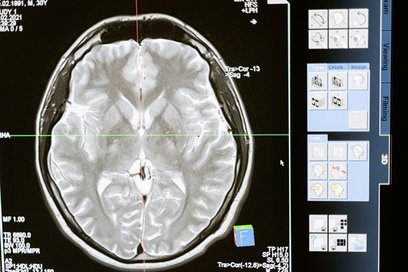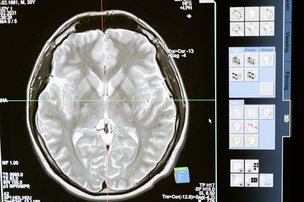
When doctors are able to diagnose dementia in time, it can make a huge difference in its treatability.
However, catching dementia in its early stages presents a significant problem for medical professionals. Fortunately, advances in artificial intelligence are improving our chances of finding and treating dementia early.
With the programs and AI-powered tools being developed all the time through groundbreaking research, care professionals are starting to unlock the secrets of the brain. AI is helping to gather data from dementia research to map, predict, and treat dementia as it occurs.
Learn how this groundbreaking technology is improving the potential of care through its role in dementia diagnosis, progression, and at-home treatment.
Diagnosis
With changes in the brain sometimes taking as long as 15 years to show any kinds of symptoms, diagnosing dementia early is a significant problem. Researchers have long dived into the nature of this degenerative brain disease only to be hampered by a lack of data. AI has the power to change that.
With the technological revolution brought about through smart devices and biometric data collection, researchers now have the ability to parse vast stores of information to better understand the early stages of dementia. Artificial intelligence plays a key role in assembling this data and keeping it safe through encryption and new data storage systems. Because biometric data is so vital to dementia diagnostic research, AI tools for understanding this data are invaluable.
Fortunately, modern technology is further aided by studies that have been going on for decades. For example, the Framingham Heart Study has been researching 5,000 patients since 1948, accumulating vast stores of data throughout these patient’s lives. With this data in hand, IBM’s AI was able to analyse speech samples from cognitively healthy patients and diagnose or predict the likelihood of developing a cognitive disease.
"The key finding is that seven years in advance of clinical diagnosis, we can say with 70% accuracy that people will go on to develop Alzheimer's," said Ajay Royyuru, the vice-president of IBM Healthcare Research, in a BBC report.
This is just one example of how getting a dementia diagnosis will change with the power of AI. No longer will patients need to wait until they are long into the throes of their symptoms but they will be able to proactively treat their minds to stave off the worst of the effects.
Progression
The progressive nature of dementia makes understanding it even more problematic for healthcare researchers. From Alzheimer’s disease to frontotemporal dementia, the many types of dementia in all their stages add up to a host of confusing variables. For any medical researcher, these variables are difficult to assess. For an AI, however, the more data the better.
Charting the progression of dementia through the human brain requires doctors to have a digital trove of patient data. Because of this, the future of healthcare information systems is shifting towards electronic medical records (EMRs) and patient data portals in which data can be generated and accessed safely and easily.
These information systems are also making it easier for AI researchers to study thousands of scans in order to better understand how dementia progresses. The value of such research has been proven by Dr Ashwin Venkataraman and his team at Imperial College London, where they used AI tools to image the early pathology of Alzheimer’s disease through patient brain scans.
The availability of this digital data and the AI tools to analyse it means that we can build better insights into the progression and pathology of all forms of dementia.
Home Care
Finally, artificial intelligence research that aims to improve at-home care for dementia patients is making a world of difference. Not only can useful AI technology play an essential role in aiding patients at home, but it can also help assemble data and flag problems that allow for faster and better treatment.
One only needs to look at the work being done by the UK Dementia Research Institute (UK DRI) to understand the value of AI research to at-home care. For example, UK DRI is aiding in the efforts to create and place sensors that can monitor a patient’s body from around the house to measure vitals like heart rate, blood pressure, and body temperature. Then, AI tools collate this information and flag worrisome changes.
If a patient’s walking pattern changes, for instance, the AI is able to alert medical teams that the patient is in danger of falling. This information—along with AI-powered robotic assistants—can prevent injury and increase the safety and quality of care for dementia patients.
The Power of AI in Dementia Research
When dealing with dementia and all the devastation it causes, care providers need all the help they can get. Fortunately, AI is assisting in the research of dementia from the diagnostic to the treatment stages. This research is immensely powerful, giving care providers better insights and abilities to improve the lives of their patients.
As AI improves it will help to uncover everything from the causes of dementia to the best treatment patterns for individual patients. Explore the potential of these incredible tools, then find out how you can assist research efforts.
Would you like support with your search for a care service near you?
Please get in touch with our Care Advisers!
Call us on 01865 680331
Send message
